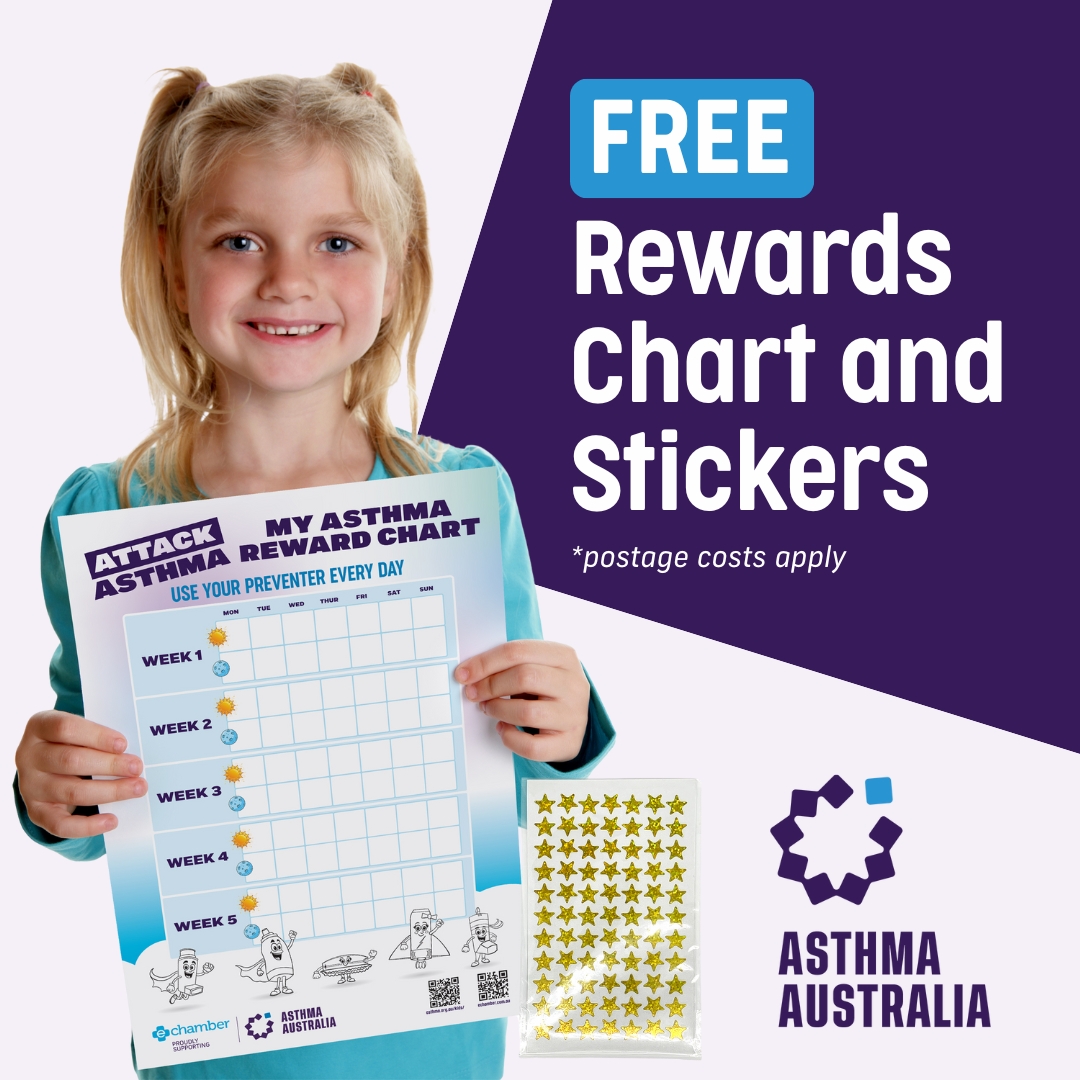Managing asthma through the teenage years
Your child is growing up! With the tween and teenage years come lots of changes, including how asthma is managed. It’s important for your teen to start taking responsibility for using their inhaler on their own. They might resist using a spacer or even skip their medicine altogether, and they could feel embarrassed about having asthma or using their puffer in front of friends. Every child is different, so it’s important to talk openly and support them as they navigate these feelings while staying on top of their asthma care.
The late teens and early twenties can be a difficult time for young people with asthma, but teaching your child to look after their asthma early can help them when it’s time for them to manage their asthma independently.
Start the Teenage Asthma Control Test
12–14 years:
- Start to involve them in their asthma care and decisions. At this stage it is important to ensure your child understands what asthma is, and specifically what their medicines do.
- At some point in this age-range, they should start being medically treated like an adult, with adult doses of medicine.
- They also gain access to more asthma treatments from age 12, like dual purpose relievers, maintenance and reliever therapy and certain monoclonal antibodies.
- Around this age, conditions that are different from, but appear like asthma, can become more apparent, such as inducible laryngeal obstruction. This is especially common in girls who are keen sportspeople. As a general rule, if your child’s asthma is worsening, or changing in nature, ensure they have a review.
15–16 years:
- Let them take over more parts of their care now, to help them learn while you can still supervise.
- They should take responsibility to remember their preventer every day and keep their reliever with them, especially when they go out. Taking their inhaler is as important as brushing their teeth, and you have trusted them to do that unsupervised for years.
- Their doctor may like to see them alone for a portion of their appointment, to ask about things like smoking, vaping and drug use and to give them a sense of self-responsibility.
- Children looked after by paediatric specialists should be engaged in a transition process to an adult asthma service. Ideally they should meet someone from the adult team for the first time in the paediatric clinic, but this is not always possible.
17–18 years:
- By now, your child should be on adult doses of asthma medicine.
- They may go to their doctor’s appointments on their own.
- If your child is working, they may need to be aware of new triggers in their workplace. This could influence their career choices or should be taken into account when thinking about protective equipment e.g. wearing a mask in dusty work sites.
- As they become an adult, they will stop being seen at a children’s hospital and by paediatric specialists. Their paediatric specialist will refer them to an adult respiratory specialist. You can help them transition into the adult system by checking on things like bus routes, driving routes, parking etc together.
- Many children’s hospitals will not accept kids with asthma who are 16 or older. Going to the adult emergency department can be an especially challenging experience for teens. Make sure you know where to go locally if your child is 16 or 17.
- If you have a Health Care Card, check if your child is still covered by it. Depending on your card, they may only be covered by it until age 16.
- Make sure they are still covered by ambulance insurance (if needed in your state).
Young adulthood
- If your child is leaving home for university or going on holidays without you (e.g. ‘Schoolies’), make sure they know how to access emergency health care when they are away.
- What are the emergency phone numbers?
- Do they have ambulance cover?
- Where is the local hospital?
Common questions from parents
| Your teen shouldn’t have to miss out on things because of their asthma. But they may need to take extra precautions when they go to sleepovers, school camps or sports events. |
Book a free consult with our Asthma Educators and your teen to help them learn more about their asthma and management by calling 1800 ASTHMA (1800 278 462).
Book a call with an Asthma Educator











